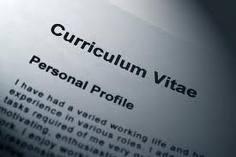Power Words are essential for your CV as the words the employer reads help them to create a picture of you and you need this image to be positive. If I tell you “Don’t think of a horse on a beach and a giant bell!” You first have to picture these images to not think about them – when you read this did you picture the horse, beach and bell, even though I told you not to?
This article is about “power” words and how words are turned into images by the reader. The key point to remember is that your CV needs to create a positive image in the employers mind, how can you do that?
Why is this Important?
I agree, why is this important? Because creating pictures from words happens all the time. When you read a description about a character out of a book, as you read the authors description you start to create an image of this person, don’t you? An employer goes through the same process when they read your CV (your description) they create an image in their mind, if the employers picture of you is positive, you will be invited for an interview.
As you read this, preparing to write your CV, you have already started to notice how powerful words can be. It’s not about using power words, it’s about which power words you should use, what skills and qualities will your new employer be looking for?
Take a minute to think about the job or career sector you are looking for work in, what skills and qualities will the employer being looking for? Write them down:
|
Skills and Qualities Needed for My Job and Career:
|
You now have a list of skills and qualities your employer is looking for, how many of these are essential? All the essential criteria from a job specification need to be added to your CV, as long as you possess them.
Re-read your list and notice the words you have written, which words can you change to make them sound more powerful? Do this 3 times; you can change a single word to a sentence if needed or the other way around.
“Being on Time” to “I am Reliable” to “I have Never Had a Day of Work”
“Good at Team Work” to “An Excellent Team Player” to “Possessing the Ability to Increase Team Moral”
Keeping adding and changing the words and phrases you use until you have a large list of power words and sentences, from this you can choose the most powerful words and create your personal profile. If you feel you need some example Personal Profiles, use our CV Template Pack to ensure you know you have a good powerful CV to impress the employer.
To help you have a powerful CV we have listed below a list of Powerful CV Words for your use, once you have wrote your CV, use our CV Review for a Free CV Appraisal.
We have recorded the Power Words under headings to make things a little easier, but the words can be used across the board and is designed to start you thinking about words.
|
Creative
|
Management | Organisation
|
|
|
|
|
Achievements
|
Team Work
|
Action |
|
|
|
|
To finish with, you will need to use “opening lines” to add your power words to, here are several examples:
“Others say…”
“I am…”
“My experience proves…”
“My ability to…”
“As you can see from my CV….”
“In addition…”
“I have learnt to…”
“Willing to….”
“Interested in….”
If you enjoyed reading this article you will also enjoy:

